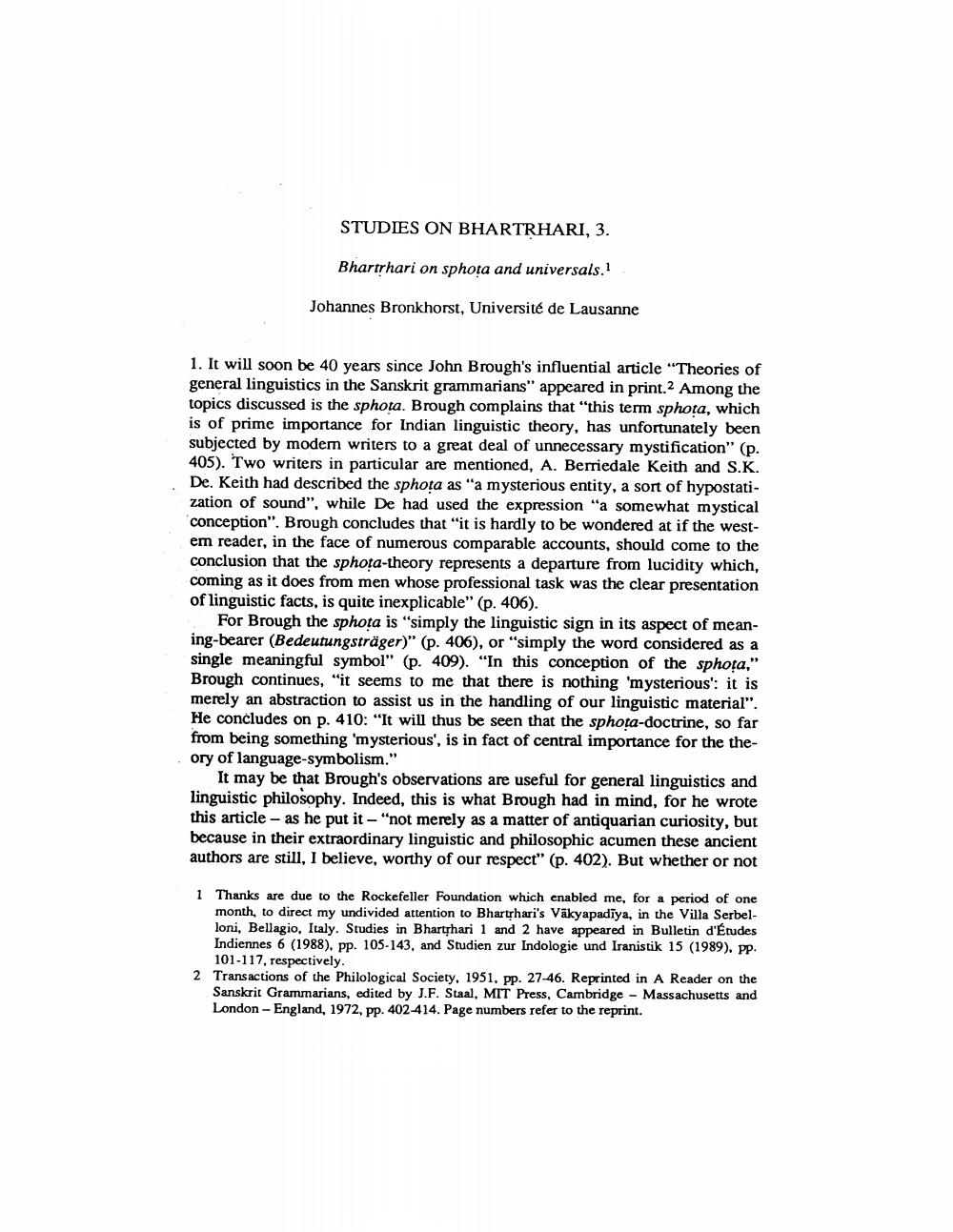Book Title: Studies On Bhartrhari 3 Author(s): Johannes Bronkhorst Publisher: Johannes Bronkhorst View full book textPage 1
________________ STUDIES ON BHARTRHARI, 3. Bhartrhari on sphota and universals. Johannes Bronkhorst, Université de Lausanne 1. It will soon be 40 years since John Brough's influential article "Theories of general linguistics in the Sanskrit grammarians" appeared in print.2 Among the topics discussed is the sphota. Brough complains that “this term sphota, which is of prime importance for Indian linguistic theory, has unfortunately been subjected by modem writers to a great deal of unnecessary mystification” (p. 405). Two writers in particular are mentioned, A. Berriedale Keith and S.K. De. Keith had described the sphota as a mysterious entity, a sort of hypostatization of sound", while De had used the expression "a somewhat mystical conception". Brough concludes that "it is hardly to be wondered at if the westem reader, in the face of numerous comparable accounts, should come to the conclusion that the sphota-theory represents a departure from lucidity which, coming as it does from men whose professional task was the clear presentation of linguistic facts, is quite inexplicable" (p. 406). For Brough the sphota is "simply the linguistic sign in its aspect of meaning-bearer (Bedeutungsträger)" (p. 406), or "simply the word considered as a single meaningful symbol" (p. 409). "In this conception of the sphota," Brough continues, "it seems to me that there is nothing 'mysterious': it is merely an abstraction to assist us in the handling of our linguistic material". He concludes on p. 410: "It will thus be seen that the sphota-doctrine, so far from being something 'mysterious', is in fact of central importance for the theory of language-symbolism." It may be that Brough's observations are useful for general linguistics and linguistic philosophy. Indeed, this is what Brough had in mind, for he wrote this article - as he put it - "not merely as a matter of antiquarian curiosity, but because in their extraordinary linguistic and philosophic acumen these ancient authors are still, I believe, worthy of our respect" (p. 402). But whether or not 1 Thanks are due to the Rockefeller Foundation which enabled me, for a period of one month, to direct my undivided attention to Bharthari's Väkyapadiya, in the Villa Serbelloni, Bellagio, Italy. Studies in Bharthari 1 and 2 have appeared in Bulletin d'Etudes Indiennes 6 (1988). pp. 105-143, and Studien zur Indologie und Iranistik 15 (1989), pp. 101-117, respectively. 2 Transactions of the Philological Society, 1951, pp. 27-46. Reprinted in A Reader on the Sanskrit Grammarians, edited by J.F. Staal, MIT Press, Cambridge - Massachusetts and London - England, 1972, pp. 402-414. Page numbers refer to the reprint.Page Navigation
1 2 3 4 5 6 7 8 9 10 11 12 ... 14
